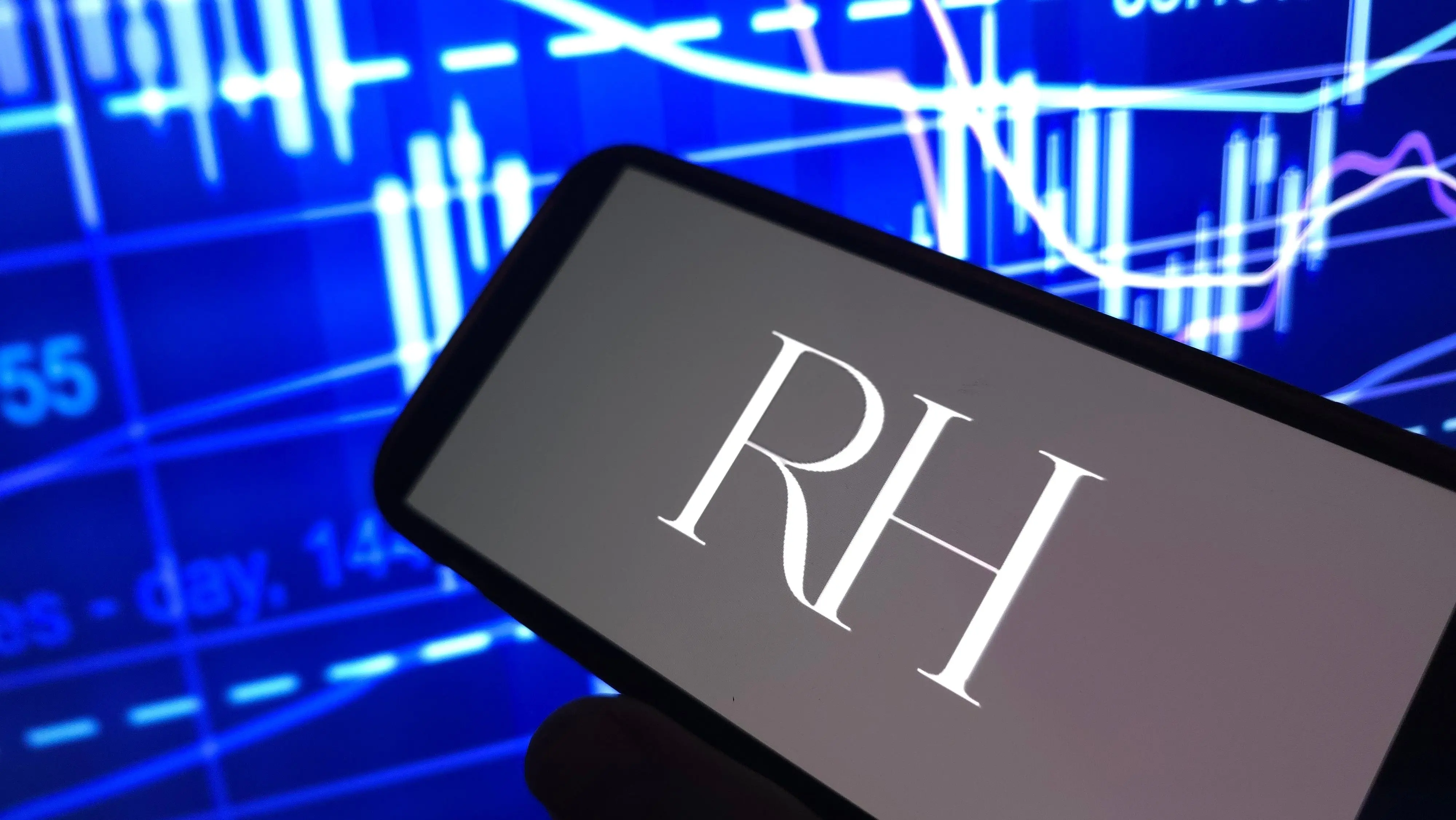
A sluggish housing market can spell slower sales and increased inventory costs for companies like RH.
“Oh sh*t!” That is a direct quote from an investor call by RH CEO Gary Friedman as his company’s stock went south as a result of President Trump’s on-again, off-again tariffs.
The Corte Madera-based company formerly known as Restoration Hardware trades on the New York Stock Exchange under the ticker RH. It imports much of its product from overseas and so it will have to pay tariffs and decide just how much of those increased costs will be passed along to customers wishing to add Resto luxury furnishings to their cribs.
Friedman has always been an expressive exec, so his verbal reaction was not a shock. But RH perhaps more than any other Marin business looks to be impacted by Trumps love of tariffs. According to securities filings, about 90% of its total dollar volume was generated by products that are imported. That number includes 72% from Asia and 10% from the EU. Though RH does have a factory in the United States that produces upholstered products (and has recently been renovated for expansion), only 10% of its revenues come from sale of products produced domestically.
In theory, tariffs could make life tough for RH. Indeed, its stock took a 40% hit after Trump announced his plan to raise tariffs. He has picked a trade war on the belief that U.S. trading partners have taken unfair advantage. Economic experts of every political stripe have said the tariffs will only increase costs for U.S. consumers as companies pass along the increased costs caused by the higher tariffs. This is to say nothing of macro-economic impacts that are likely to affect sectors that include housing and health care.
For a retail company like RH, which sells its products to those shopping for upper-end furnishings, the increased costs may not take a massive bite out of RH’s bottom line; its customers may not be put off by higher prices. Moreover, RH has the option of accepting smaller margins and eating some of the increased tariffs rather than jumping the costs of its own goods.
But RH has more to worry about than just the tariffs. The domestic housing market has also stumbled on increased interest rates and houses staying on the market for longer periods of time. For a company like RH, that can spell slower sales and increased inventory costs.
On the investor call looking at the company’s fourth-quarter financials, Friedman said the company was already sitting on U.S.-based inventory valued at $200 million to $300 million, inventory not subject to the whims of Trump’s appetite for trade warfare.
Shares of RH closed Friday, April 27 at $185.49. Over the last year, shares have ranged from a high of $457.26 to a low of $123.03. Because of the movement of the stock as well as Trump’s tariffs, RH has drawn the attention of a number of law firms that make a living off class action lawsuits tied to large moves in stocks, alleging the jumps or decrease in share prices are brought on by fraud.
Such lawsuits are standard equipment in uncertain markets.
Your Marin Moment
Mill Valley got a little ink in the New York Times not long ago. Heather Knight, a reporter well versed in the North Bay, checked in with a dispatch regarding the existential question of the day—how do denizens of Mill Valley balance their love of the environment with their dislike of Elon Musk and political proclivities?
A casual drive around the town reveals no shortage of Teslas from the parking lots of Whole Foods to residential streets and commercial driveways. And the angst is far easier to find than EV charging stations.
While California leads the nation in number of EVs on the road, Teslas became more than just a car that was better for Mom Earth. It was bit more stylish and faster than a Prius (but then, multi-speed mountain bike laps a Prius as well), but it was more than that. It was a status symbol that not only said you were green, but that you had green.
But now, with the first 100 days of the Trump regime in the past, and Musk helping himself to government data and contracts, Tesla owners are faced not only navigating traffic, they must traverse their own feelings of self-loathing.
Not long ago, buying a Tesla was a statement. But now, selling one is just as much a proclamation of not only one’s political beliefs, but one’s willingness to come out underwater on the sale.
Alas, life in the land of organic milk and small batch honey is not always easy.
Bill Meagher is a contributing editor at NBb and a senior reporter at The Deal, a Manhattan-based digital financial news outlet. At this writing in late April, the Gigantes lead the West, and I’m convinced the Big Guy Upstairs has dropped everything else to support the folks operating out of the best ballpark in baseball.
Author
-

Bill Meagher is a contributing editor at NorthBay biz magazine. He is also a senior editor for The Deal, a Manhattan-based digital financial news outlet where he covers alternative investment, micro and smallcap equity finance, and the intersection of cannabis and institutional investment. He also does investigative reporting. He can be reached with news tips and legal threats at bmeagher@northbaybiz.com.
View all posts



